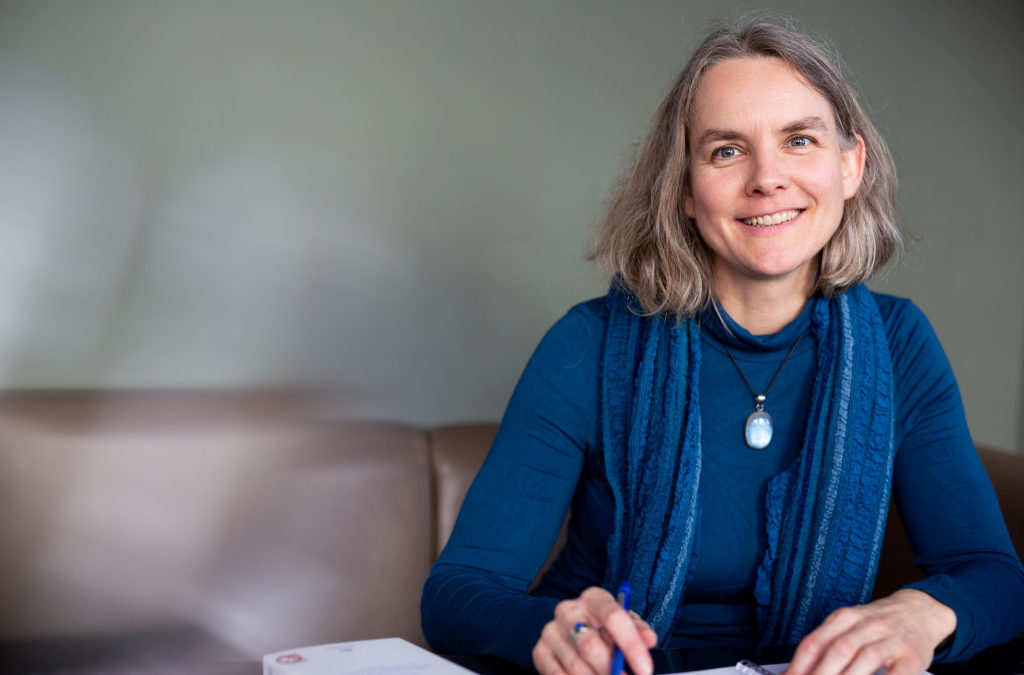On September 6 and 7, 2019, the HfMT will host the conference “Places of refuge – war, fleeing, arrival – experiences in music therapy and music education”, co-initiated by Prof. Karin Holzwarth.
THE POWER OF THE NONVERBAL
MUSIC THERAPIST KARIN HOLZWARTH ENJOYS THE PLAYFUL
from 01.04.2019
In October 2017, Karin Holzwarth was appointed professor for music therapy at the HfMT — an institution not entirely unknown to her, since the native of Stuttgart had studied music education with a major in rhythmics as well as music therapy here. Her studies were followed by various and numerous freelance activities as a music therapist, music teacher and musician. Since 2010, her professional work has also been characterised by a lively lecture activity, for example at the HfMT, the University Medical Center Hamburg-Eppendorf (UKE) and nationwide at music therapy and music education congresses on the topics of music therapy and coma vigil, music therapy in schools and music schools, music therapy and the social mission of inclusion. Karin Holzwarth has made her experiences public for scientific discourse in numerous publications in specialist literature.
Rhythmics – When movements arise from within
The therapist and educator living in Ottensen likes to think back to her studies at the HfMT. “My main subject in my first degree was rhythmics, so as students we were always colourful birds in the air. I really enjoyed the playfulness of this course. We had the luxury of small study groups with plenty of room for exploration. I remember how we searched for movements in long sequences with our eyes closed, exploring the space, how the movements came into being out of themselves without any action on our part. The focus of my rhythmic studies was the body-therapeutic method of eutony according to Gerda Alexander. Today I think that this direct experience of body knowledge has shaped me the most”.
Music therapy – “reading” the body of the person opposite
The wish to become a music therapist was already clear to Karin Holzwarth during her first studies. After graduating, she completed a private law education in Austria, the so-called Ancient Oriental Music Therapy / Ethnomusic Therapy. There she was taught the traditional Turkish macam system, which taught her to play a number of partly historical, classical Turkish instruments, including the knee-joint rebab, the reed flute ney and the articulated neck lute Ud.
As a young professional Karin Holzwarth first worked for seven years in a clinic for adults in psychosomatic and psychotherapeutic medicine. In the last 15 years of her professional practice, two main areas of focus have emerged for her: “On the one hand, music therapy with awake comatose patients and in the palliative area/child hospice, and on the other hand music therapy in an educational setting with children and young people. Here I have as main focuses the areas of inclusion, especially in relation to social disadvantage, disability, cultural diversity and the experience of escape. These two fields of action seem to be, and in many respects are, contradictory. What unites them, however, is the emphasis on the non-verbal, i.e. ‘reading’ the body of the other person. Here I find my first studies to be an extremely helpful basis.” In her still quite new position as Professor of Music Therapy in Hamburg, her bundled experience from decades of work in this and peripheral areas will be incorporated.

